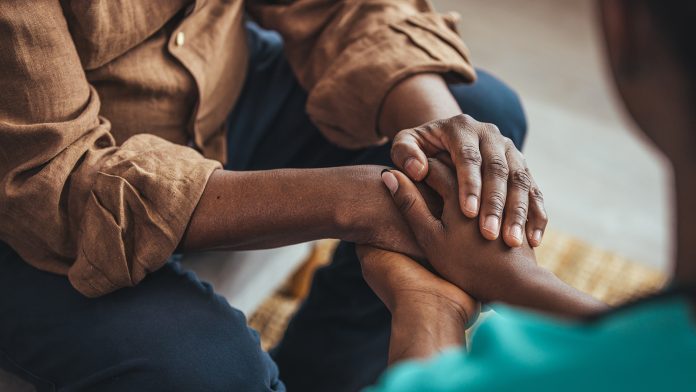
During the COVID-19 pandemic, many people were forced to become informal carers; according to new research, many of these people experienced a decline in their own mental health.
Researchers from Lancaster University studied 4,698 participants who completed 11 surveys as part of the UK Household Longitudinal Study. Three surveys were taken before the COVID-19 pandemic, and eight were completed between April 2020 and March 2021.
The researchers studied three groups: existing carers, new carers, and never-carers. Existing carers, who had caring responsibilities prior to the pandemic made, made up 349 of the participants. There were 1,655 new informal carers, who started providing care during the pandemic, and 2,695 never-carers, who provided no care before or after the pandemic.
The paper, ‘Does caring for others affect our mental health? Evidence from the COVID-19 pandemic’, has been published in the Social Science and Medicine journal.
What is an informal carer?
The Department of Health and Social Care has defined an informal carer as: ‘someone who provides unpaid help to a friend or family member needing support, perhaps due to illness, older age, disability, a mental health condition or an addiction, who is not employed to do so’. According to the Family Resources Survey, as of 2020/21, around 6% of the UK population (4.2 million people) provided some form of informal care.
The Lancaster University study revealed that new carers experienced significant distress during national lockdowns. Existing carers also experienced their worst mental deterioration during the third national lockdown in January 2021. The data also indicated that men who experienced the most significant mental ill-health were those who lost their jobs during the pandemic.
The impact of national lockdowns on carer’s mental health
The study highlighted sizable fluctuations in mental health in the UK due to the social restrictions put in place by the government. The mental health of those who became informal carers during the pandemic was consistently worse than those who did not provide any care.
“Our evidence suggests that while social restrictions were put in place to curb infection rates and protect the public from COVID-19, the mental toll this had on informal caregivers was sizeable,” explains Chiara Costi, lead author of the study.
“This is the first time, to our knowledge, there has been any focus on the mental health of the vast number of people who became informal carers during COVID-19 in the UK,” she continued.
The data also revealed that people who became informal carers were younger, on average, than existing carers. Informal carers were also more likely to have dependent children and to be fully employed. However, existing carers had worse physical health and greater functional limitations and were more likely to have long-standing illnesses.
“While all groups we studied have similar demographics in terms of gender, ethnicity and education, existing carers are older on average, when compared to new carers”, said co-author Dr Vincent O’Sullivan from the University of Limerick.
“This could mean that existing carers may have started to provide care earlier to support older parents or relatives, hence having better mental health at the start of the pandemic when compared to those who just started caregiving,” he added.
The researchers hope their findings can inform policymakers and help provide psychological support for informal carers in the future. They stress that forms of support for caregivers should go beyond financial or respite care.









